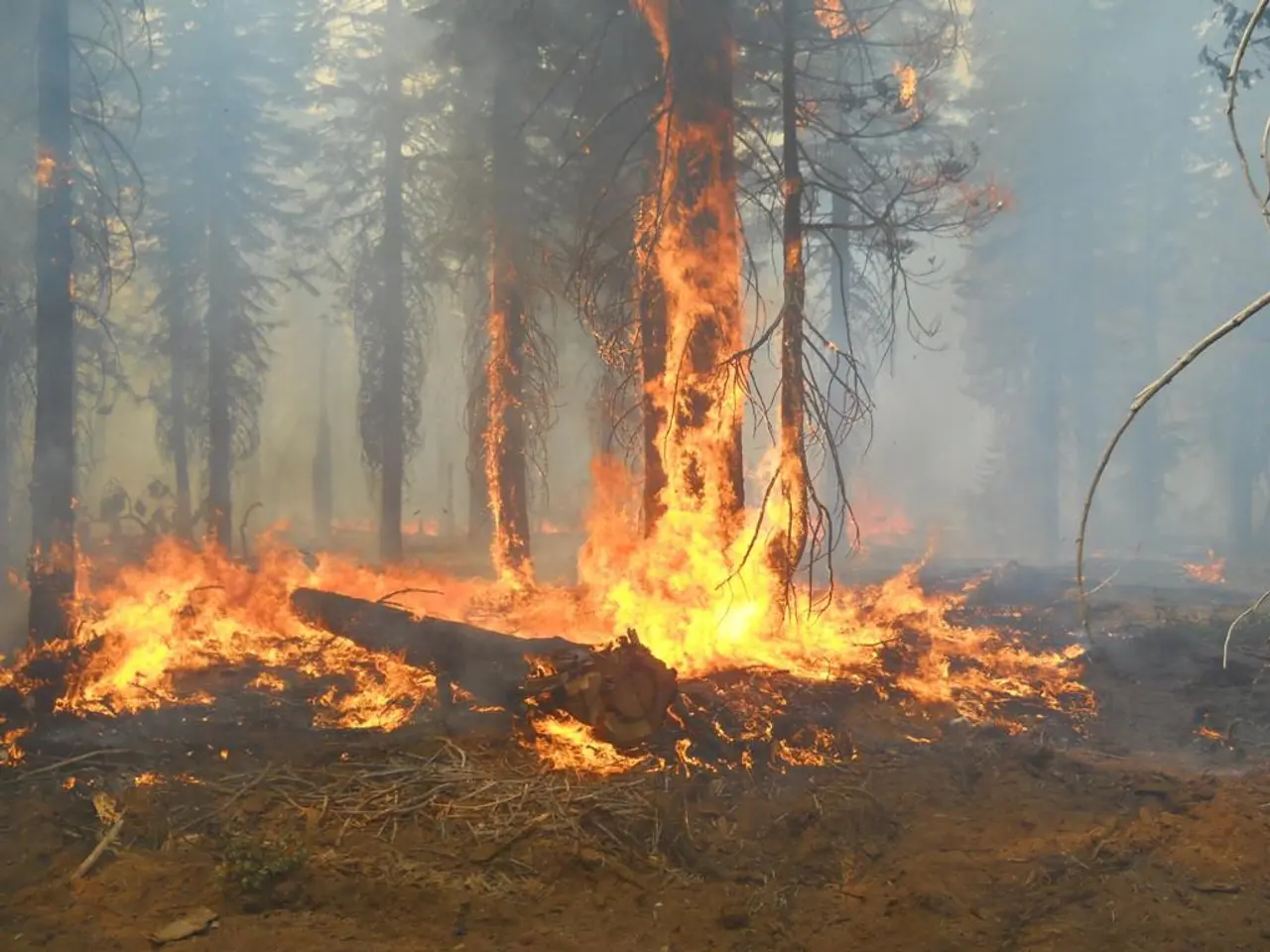Fires ravage substantial land areas in Spain, with similar blazes occurring in Portugal as well.
Record-Breaking Wildfires Sweep Through Iberian Peninsula
Firefighters in Spain and Portugal are currently battling over 2,000 wildfires that have been raging for the past week, with assistance from several European countries and Morocco. The devastating fires have set new records in land destruction, making 2025 the worst wildfire season in over 30 years for Spain and Portugal's record-breaking year in terms of burnt forest area.
The 2025 wildfires were primarily driven by a combination of factors, including a record-breaking heatwave, excessive vegetation due to poor forest management, specific ignitions such as lightning strikes, and human-related factors exacerbated by governmental shortcomings in managing vegetation clearance. Climate change is also worsening conditions by causing hotter, drier summers, intensifying the fire risk.
Since January 2025, over 1 million hectares have burnt across the EU, with Spain and Portugal being the hardest hit. Spain's worst-hit provinces include Ourense, León, and Zamora, where up to a seventh of the territory was burned in places like Ourense (150,000 ha burned). Several fatalities occurred among civilians and firefighters, with hundreds injured and tens of thousands evacuated.
Experts emphasize that while climate change heightens fire risks, most wildfires are preventable with adequate forest and land management. Prevention measures include clearing excess ignitable vegetation, reversing the trend of rural exodus, investing in sustainable land use, and improving coordination and funding for fire prevention and rapid response systems at local, national, and EU levels.
Spain's environmental prosecutor is investigating the lack of fire prevention regulations and implementation, highlighting institutional challenges. Satellite monitoring via services like the EU’s Copernicus Emergency Mapping helps track fires and support emergency response but does not replace on-the-ground prevention.
In Portugal, around 2,000 firefighters are battling forest fires in the north and center of the country, with firefighting aircraft from France, Italy, Slovakia, and the Netherlands assisting in the efforts. Portugal holds the European record for fire damage, with 563,000 hectares of land destroyed by fires in 2017, and 119 people losing their lives.
As the heatwave that brought temperatures of 45 degrees in some parts of Spain comes to an end, the battle against the wildfires continues. Residents in the affected areas wear masks to protect themselves from thick smoke, and in some areas, residents are also trying to stop the spread of the fires with buckets of water. The regions of Galicia, Castile and León, and Extremadura in Spain, and unspecified regions in Portugal, have been the hardest hit by the forest fires. The area destroyed by forest fires in Spain this year is roughly equivalent to the size of almost half a million football fields.
- Implementing a community policy focusing on rural development, specifically involving improved forest management and sustainable land use, could potentially reduce the risk of wildfires and decrease the severity of future seasons in the Iberian Peninsula, as it might help clear excess ignitable vegetation and slow the trend of rural exodus.
- Environmental-science research, particularly studies on climate-change and weather-forecasting, could provide valuable insights into the future impact of wildfires in the Iberian Peninsula, allowing for more effective strategic planning and prevention measures to be put in place.
- As the effects of climate-change worsen, it's crucial to address these issues within the broader context of environmental-science and rural development policies, in order to mitigate the risks of record-breaking wildfires and other natural disasters that threaten the region's ecosystems and communities.








